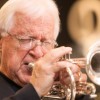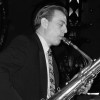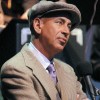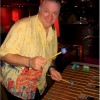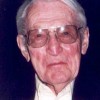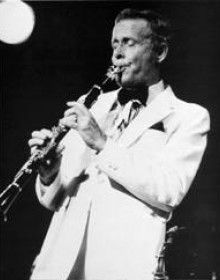
Bob Wilber was born in 1928, in New York City. After studying clarinet as a child, Wilber began leading his own band, and while still a teenager, became a student of Sidney Bechet. He recorded with Bechet, grew adept on the soprano saxophone, and was clearly at home in a traditional jazz setting. Nevertheless, Wilber's avid desire to expand his knowledge and expertise led him to further studies under Lennie Tristano. A mid-'50s band Wilber led blended traditional with modern concepts in jazz, and perhaps predictably, fell between the two audiences for such music.
During the late '50s, and on through the '60s, Wilber played and recorded with distinguished leaders such as Bobby Hackett, Benny Goodman, Bechet, Jack Teagarden and Eddie Condon. At the close of the '60s (at this time also playing alto saxophone), he became one of the original members of the World's Greatest Jazz Band. In the early '70s, he teamed up with Kenny Davern to form Soprano Summit, a band which brought him to the attention of new audiences around the world. This group stayed in existence until 1979, and soon afterwards he formed the Bechet Legacy band, recording extensively, often on his own record label—Bodeswell.
Active in jazz education, Wilber has also been musical director of the Smithsonian Jazz Repertory Ensemble, the house band for some of the Duke Ellington conventions, and has written for films, most notably the recreation of Ellington's music for The Cotton Club (1984). He continued leading his Bechet Legacy band throughout the 80s, making records (including a fine set which set out to recapture the essence of the King Oliver Band), and accompanying his wife, singer Joanne 'Pug' Horton. He also recreated a Benny Goodman band for anniversary performances of the 1938 Carnegie Hall concert and published his autobiography, Music Was Not Enough (in collaboration with Derek Webster). In the early '90s Wilber was reunited with Davern for concert appearances and was still keenly exploring new ways of presenting older musical styles to a contemporary audience.


